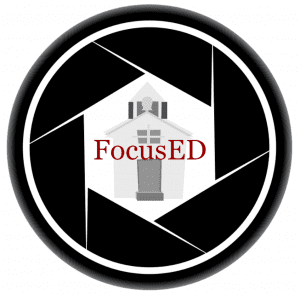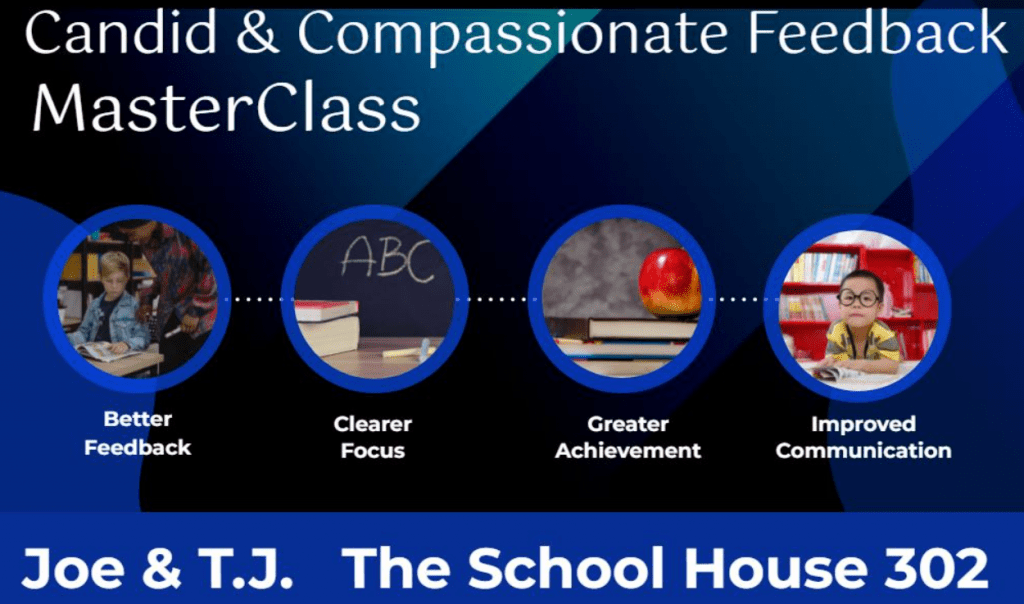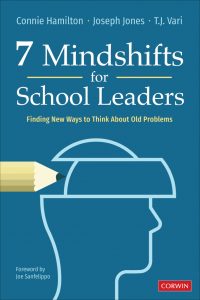
Every School Leader Wants a Professional Learning Culture that Inspires Teachers to Grow–Here are Three Areas You Cannot Overlook
Be not afraid of growing slowly; be afraid only of standing still. ~ Chinese Proverb
It’s safe to say that most educators epitomize lifelong learning. They desire to learn more about their subject, their students, new techniques, and effective practices. The real question isn’t if teachers want to learn and grow, but rather do they want to learn and grow from what you are offering? Candidly, as educational leaders, practitioners ourselves, we know that is a tough question to ask ourselves and our staff. The answer may be difficult to hear, but this blog is about real talk for real leaders, where we willingly face some uncomfortable truths for the betterment of our schools and students. And, what we know is that schools that act as centers of adult learning thrive in ways that other schools don’t. It’s that simple, and that’s the hard part. The harder part is knowing how to build a culture where everyone wants to learn and grow together.
As educational leaders, we know that we don’t always have the liberty, time, capacity, or need for à la carte items that will satisfy every learning palate. Additionally, with increased mandates and required training, there is less flexibility on what can be offered to our staff. Yet, the truth is that there still is a way to cultivate and develop a culture that recognizes, appreciates, and understands the learning needs and growth experiences of every single person.
21st Century effective school leaders embrace their responsibility to prioritize professional learning and growth for every staff member. A robust adult learning culture is the only way to develop specific skills and build capacity in-and-out of the classroom. This effort requires a sophisticated but practical approach so that teachers and support personnel receive multiple layers of learning–as individual contributors, in teams at the school and district level, and through opportunities to learn about leadership.
There are multiple positive effects of this effort and culture-building. One is an improved and highly skilled teaching core; two is increased student performance within the classroom; and three is developing leaders among the staff.
In a series of studies, the Wallace Foundation uncovered that there are five critical practices that are essential to school leadership. For this post, we want to highlight two that we believe have the greatest impact on student achievement and a school-wide culture that is focused on learning. The two practices that effective leaders must excel at are:
- Cultivating leadership in others so that teachers and other adults assume their part in realizing the school vision.
- Improving instruction to enable teachers to teach at their best and students to learn at their utmost.
To achieve this end, we developed a three part model that takes inventory of where people are on their personal professional learning journey, the overall school professional learning plan, and the leadership opportunities that are offered throughout the school year. The power in following this model is in the alignment of the three areas, how they coordinate and support one another, and how they reinforce the two practices that The Wallace Foundation described above.
Individual Learning and Growth
For schools and districts to develop valuable, worthwhile, and results-oriented professional learning, the overall “health” of the organization must be good. According to Lencioni, “at its core, organizational health is about integrity, but not in the ethical or moral way that integrity is defined so often today. An organization has integrity–is healthy–when it is whole, consistent, and complete, that is, when its management, operations, strategy, and culture fit together and make sense.” Great schools build great teachers within healthy systems.
This means that school leaders work to build an environment where the individual strengths and weaknesses of a teacher are known and supported–where teacher goals reflect not only their student data but their own growth and development. This is an environment that embraces risk-taking where teachers willingly try new strategies, implement new ideas, and toy with new resources. It’s a mindshift for some schools, but this mentality about learning and growth fall within a school leader’s control.
We’ve often heard that people don’t quit jobs; rather, they quit bosses. But, that’s not the full story. The truth, found within one study at Facebook, is that the decision to exit can be because of the work. “They left when their job wasn’t enjoyable, their strengths weren’t being used, and they weren’t growing in their careers.” This is why tuning into the individual teacher is critical. A teacher can literally spend their entire career in the same classroom. Yet, they can have a unique and exciting experience every day as long as the context of their growth is central to how they interact with their work, their students, and their peers. The opposite is also true; isolated teachers don’t grow and can become disenfranchised by their work.
Great leaders apply pressure and support. They support and encourage individual growth with an expectation that everyone is a learner. Doing so at the individual level demonstrates a leader’s capacity to improve instruction by enabling teachers to teach at their very highest levels.
Technical Tip: Inventory your staff’s unique skill sets. Every school should know who excels at what and how they can lend their expertise. Some may excel at blended learning, while others are incredible at developing higher order thinking questions. Can you answer these two questions:
- I know my staff’s unique skills?
- I actively build a culture that allows teachers to build on their strengths?
Professional Learning
Every school has a dynamic staff with a unique set of talents and skills. Knowing what those skills are is vital to a staff’s growth, which also means professional learning cannot be a one-size-fits-all model. Educational leaders sometimes underestimate how personal a teacher’s classroom and expertise is and simply offer what they believe is best for everyone at the macro level. Great professional learning, according Linda Darling Hammond, “is most effective when it addresses the concrete, everyday challenges involved in teaching and learning specific academic subject matter.”
This is why we appreciate the work of Michael Mankins and Eric Garton. In Time, Talent, Energy they claim that “perhaps the most transformational thing a company can do for its workforce is to invest in creating jobs and working environments that unleash intrinsic inspiration. This is the gateway to the discretionary energy that multiplies labor productivity: An inspired employee is more than twice as productive as a satisfied employee and more than three times as productive as a dissatisfied employee.” We wrote a ton about this concept in Retention for a Change if you want to know more about how this works in schools.
The key is unleashing the intrinsic inspiration by learning the staff’s strengths, understanding what they need to improve their day-to-day performance, and tapping into discretionary energy by ensuring that professional learning is relevant to the individual, timely in terms of need and execution, and quality as an engaging offering. Teachers want their students to succeed, so the greater connection they see between professional learning (relevant) and their classroom, the more invested the teachers will be.
Technical Tip: Review your professional learning (PL) calendar and determine the level of alignment between the offerings throughout the year and your answers to these two questions:
- Is PL aligned to what improves instruction?
- Is PL relevant to staff during the time we’re offering it?
Leadership Opportunities
The first national presentation we ever led was on teacher leadership at the ASCD Conference in 2015. Since that time, we’ve taught and coached on several different topics, but teacher leadership and feedback cycles remain near and dear to our heart and what we’re mostly requested to help with in schools around the country. Why? Because as former principals, we know that any effective school has incredible teacher leaders and that they deserve quality feedback on their leadership skills (not just their ability to teach well). And, developing teacher leaders is an active pursuit. We fully agree with the words from these directors from New Leaders, “our most successful principals unfailingly encourage and cultivate leadership among their teachers so that the burdens and rewards of conceptualizing and carrying out instructional improvement efforts are shared.”
Effective school leaders use teacher leaders to fulfill the vision and mission of the school, which is the other critical practice identified by The Wallace Foundation. This intentional development should build teachers to take on a variety of roles from professional learning responsibilities, non-evaluative and non-threatening peer observations, researcher roles, community outreach, assessment team leader, and a host of other possibilities. The truth is that there are so many responsibilities that leaders work to control, and, if they’re just willing to work with their staff, developing leaders among them, then the school will accomplish so much more and grow in diversification and authenticity.
Technical Tip: Effective leaders spend time actively developing teacher leaders because they know that they cannot do it all. Make sure your leadership team agenda includes book studies, case studies, and more. Answer these two questions:
- Have you asked your staff for help, to specifically lead initiatives or other areas, where support is needed?
- Do you actively invest in teacher leaders in meaningful ways, such as book studies and other important time spent at meetings with leaders?
Measuring the Degree of Growth in Schools
One way to know if people are growing and feel that their growth is supported is to ask. Great leaders measure effectiveness and take inventory. We always talk about measuring what matters, but few leaders measure whether or not the culture is one that can be described as growth oriented.
That’s why REPSS has an entire section dedicated to growth, and all of the questions are about the five principles from above. The support section questions are below, and you can get the whole survey in our Building a Winning Team book.

Reputable, Effective, Perception Survey for Schools
Support (REPSS)
Growth Questions
-
- My supervisor encourages my learning and growth.
- An administrator, other than my supervisor, has spoken to me this year about my progress as an educator.
- There are opportunities to serve in leadership positions at my school.
- The building level professional learning I participated in this school year was relevant.
- The building level professional learning I participated in this school year was timely.
- The building level professional learning I participated in this school year was quality.
- The district level professional learning I participated in this school year was relevant.
- The district level professional learning I participated in this school year was timely.
- The district level professional learning I participated in the school year was quality.
- I am given the opportunity to provide professional learning to my colleagues.
As always, let us know what you think of this with a like, a follow, or a comment. Find us on Twitter, YouTube, iTunes, Facebook, & SoundCloud. And, again, if you want one simple model for leading better and growing faster per month, follow this blog by entering your email at the top right of the screen.
TheSchoolHouse302 is about getting to simple by maximizing effective research-based strategies that empower individuals to lead better and grow faster.
This blog post was brought to you by GhostBed, a family-owned business of sleep experts with 20+ years of experience. With 30K+ 5-star reviews, you can’t go wrong with GhostBed. Their mattresses are handcrafted, and they come with a 101-night-at-home-sleep trial. For a limited time, you can get 30% by using our code — SH302 — at checkout. And, even if you tell someone about GhostBed, you can earn a $100 referral reward. Go to Ghostbed.com today and use SH302 at checkout.











 7 Mindshifts for School Leaders: Finding New Ways to Think About Old Problems.
7 Mindshifts for School Leaders: Finding New Ways to Think About Old Problems. 


